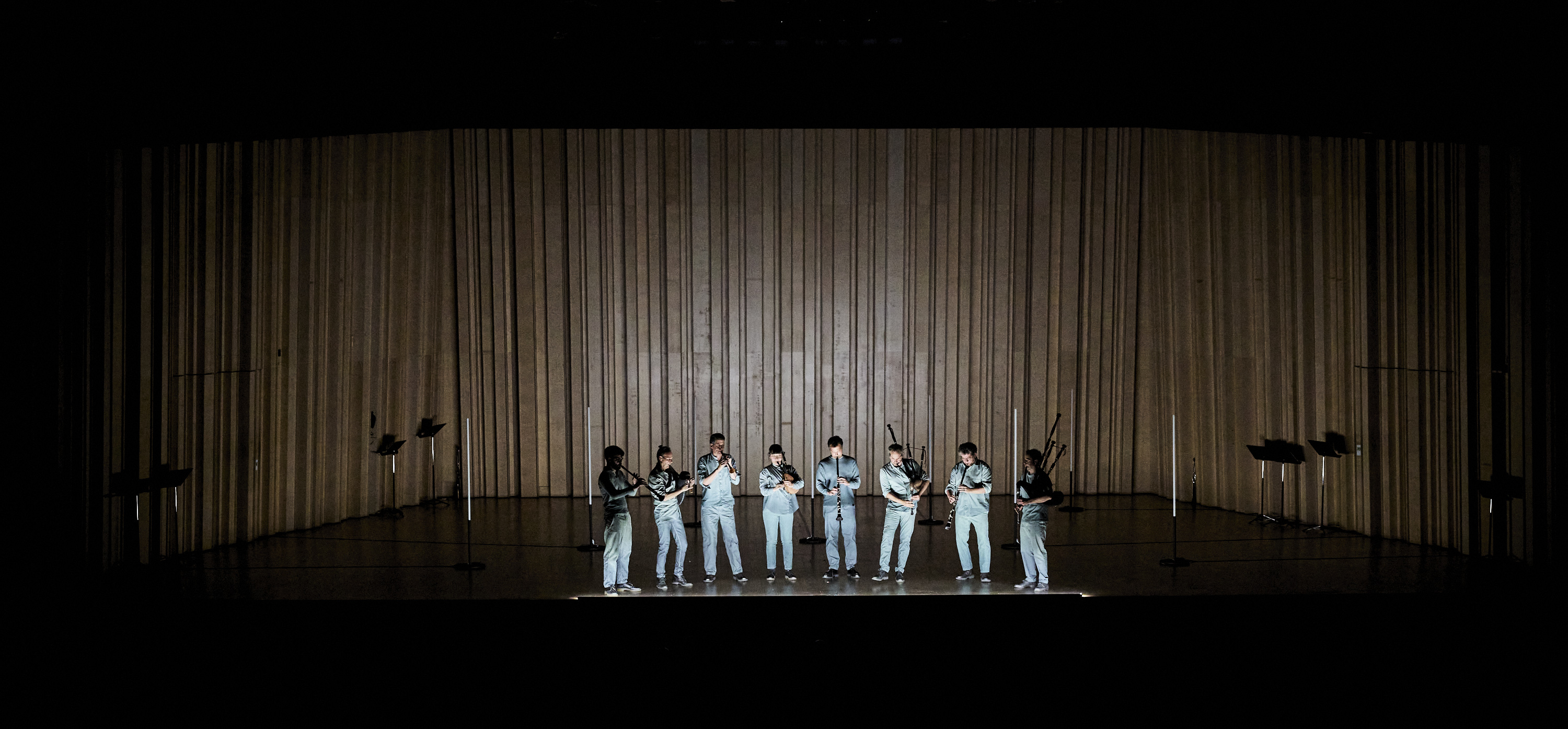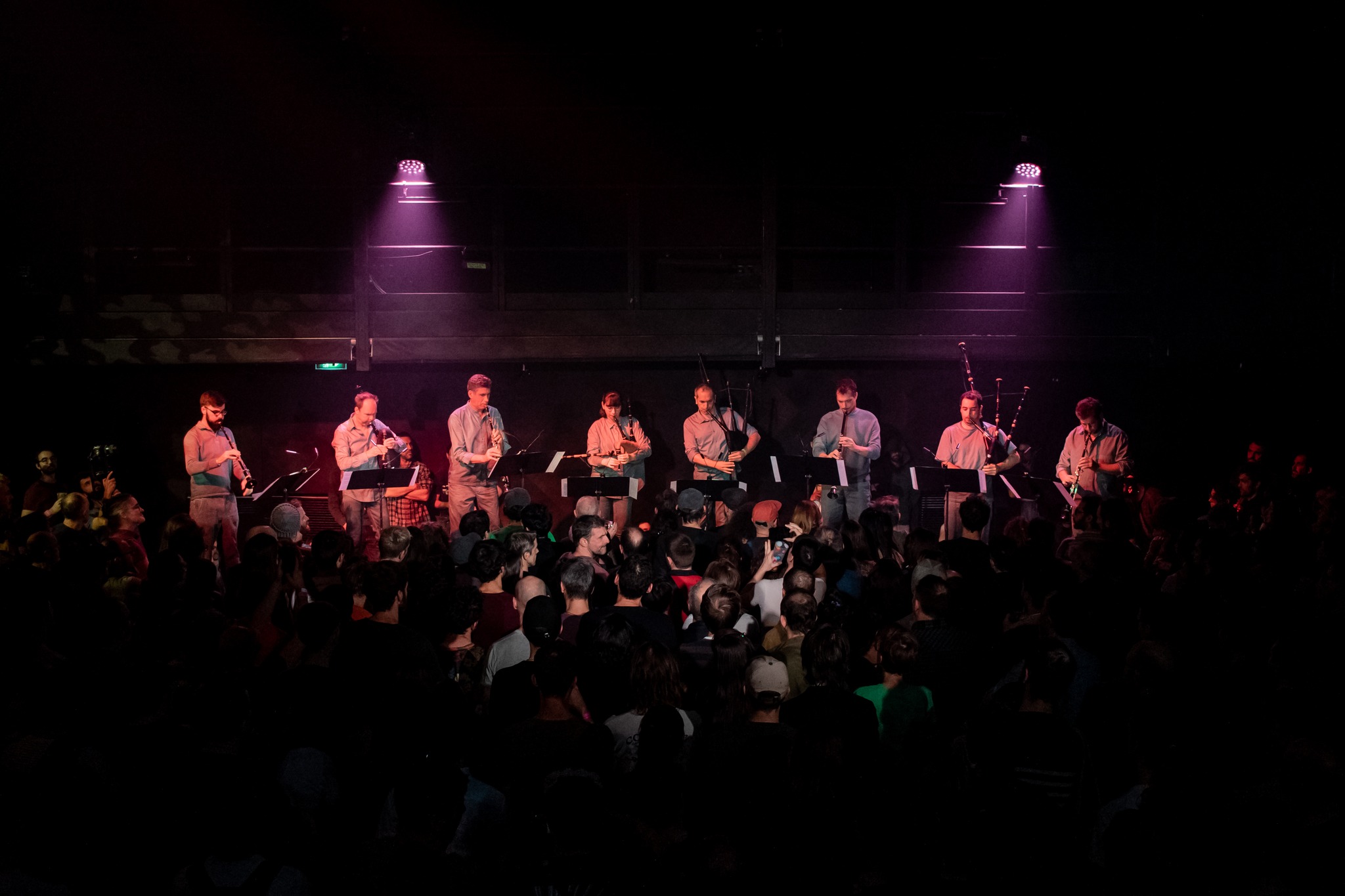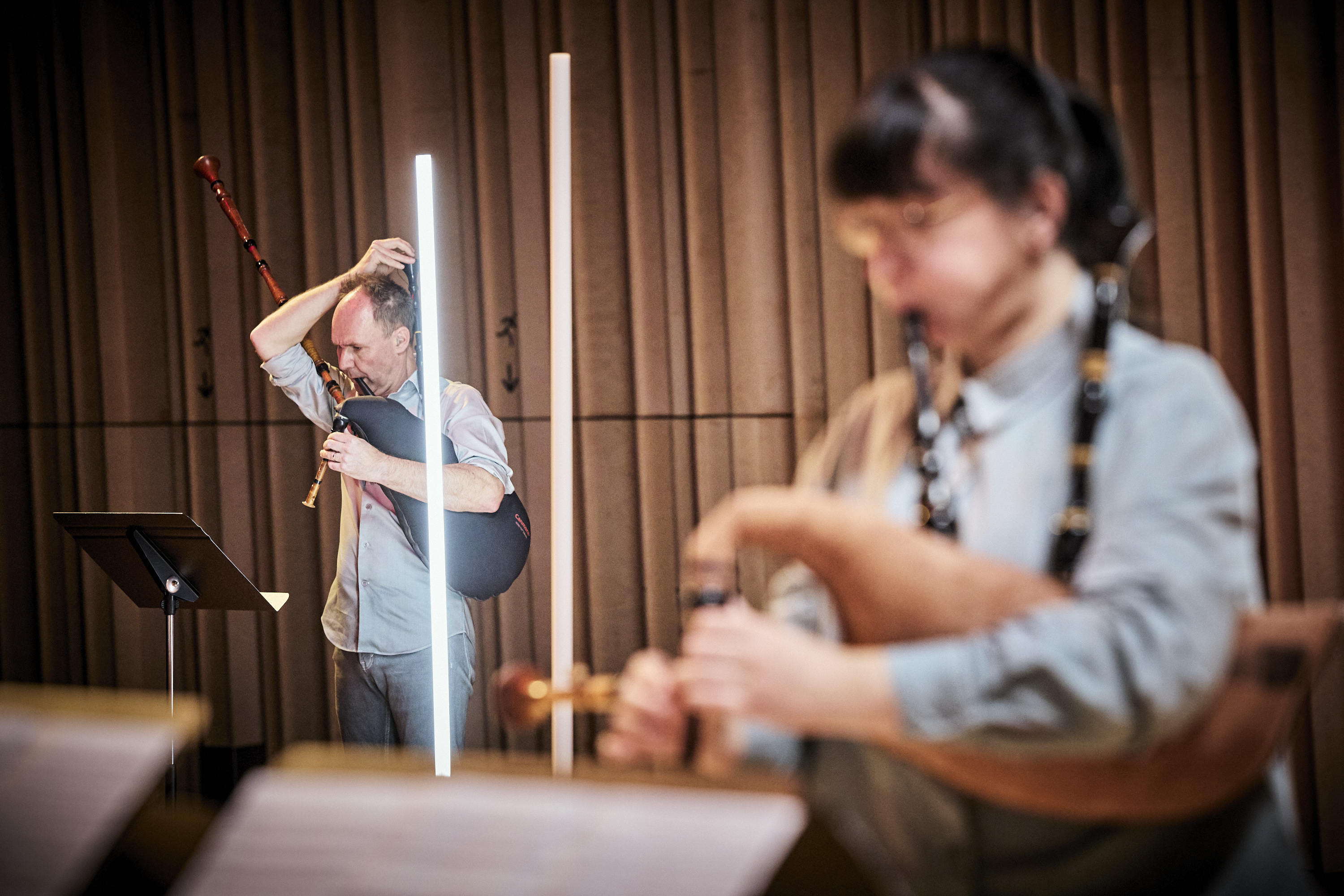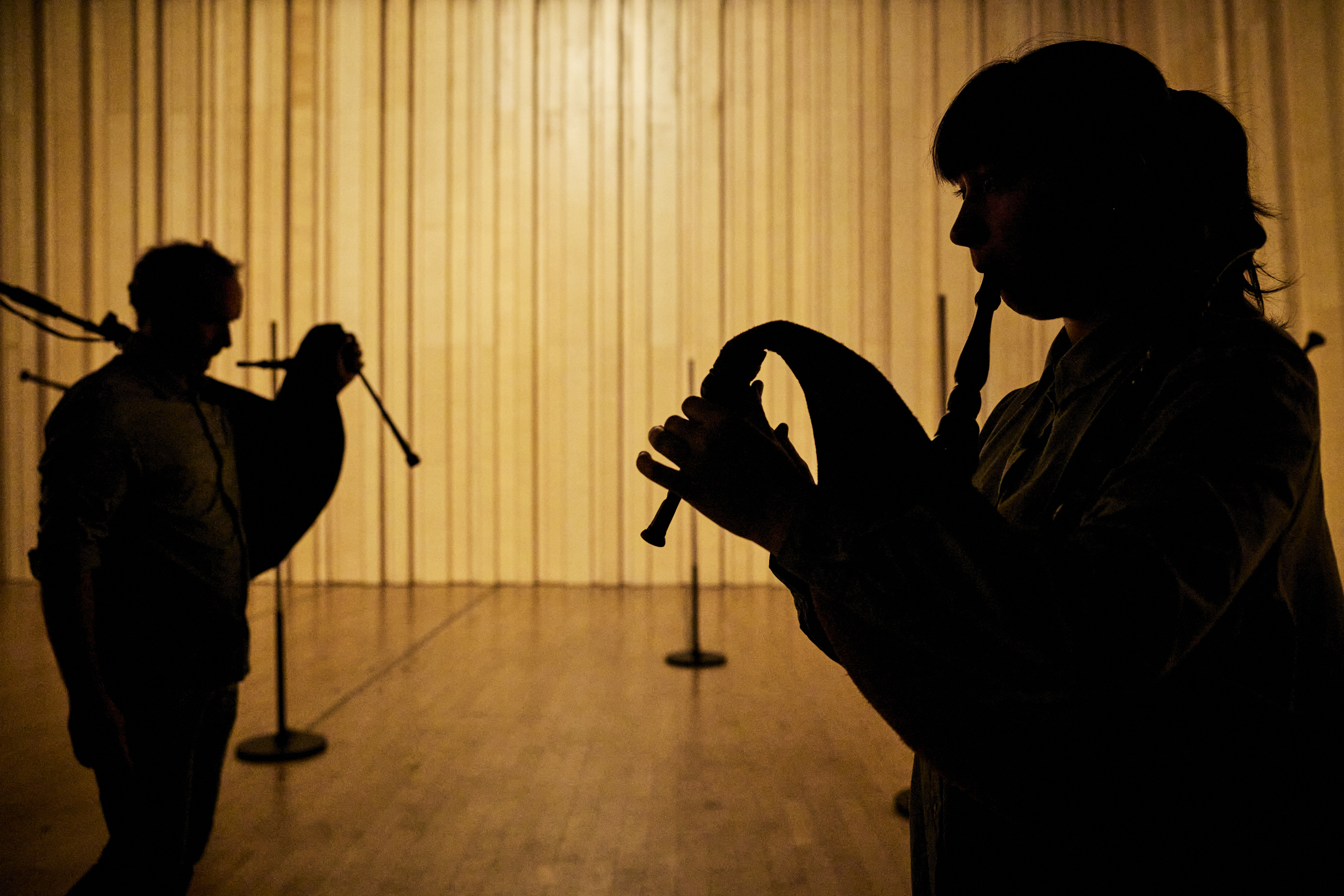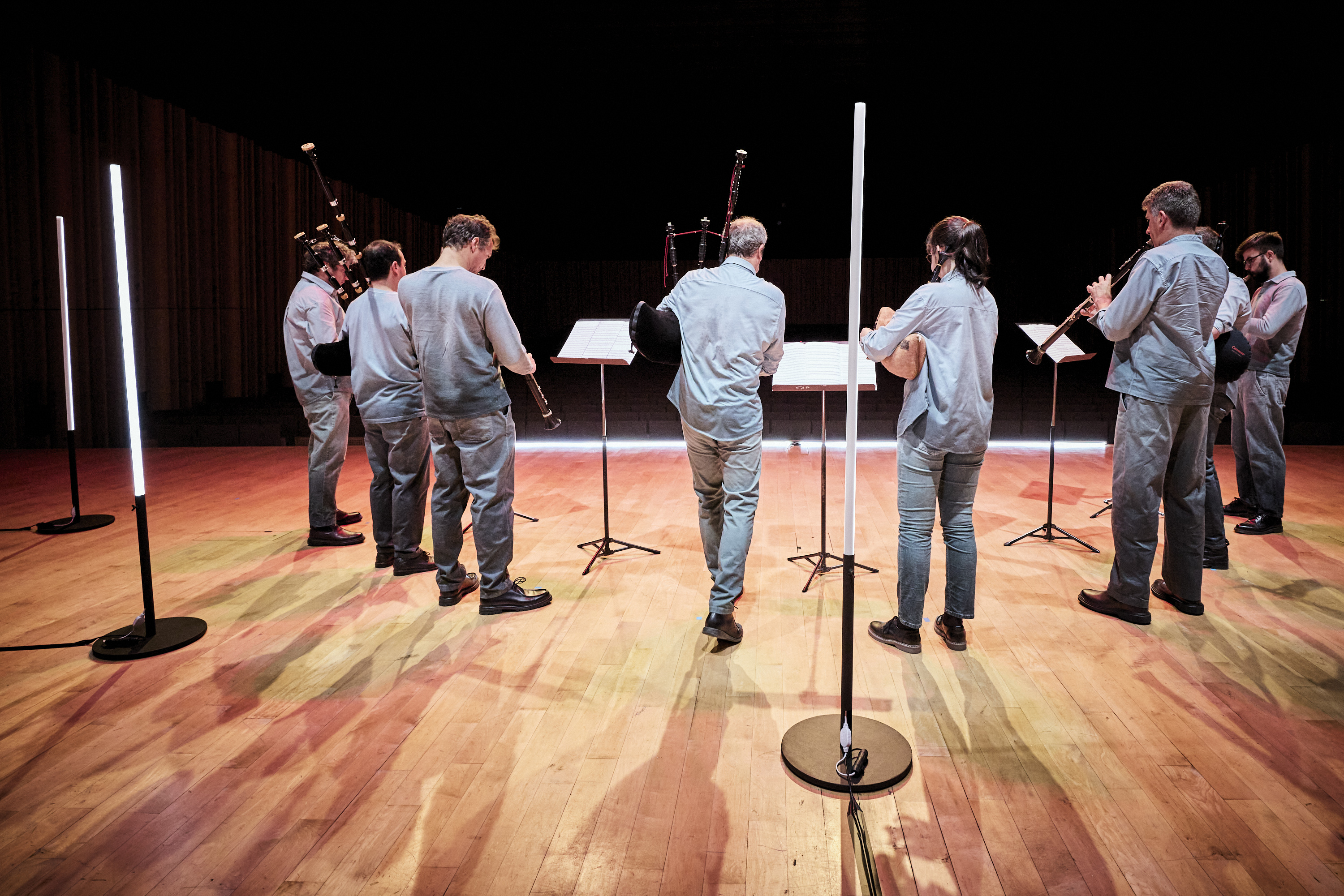8 PIPERS FOR PHILIP GLASS
In 1969, Philip Glass wrote Two Pages (February), Music in Fifths (June), Music in Contrary Motion, (July), and Music in Similar Motion (November), using the same principle of repetition of simple musical elements which become pro- gressively more and more complex. These four pieces became milestones in the brand-new musical movement of the time: minimalism. Today, they form part of Philip Glass’s First Classics. They were the starting point of the path that would lead Glass to compose his opera Einstein on the Beach in 1975. In 1994, brought together for the first time, these four pieces were released on record by the Philip Glass Ensemble.
Philip Glass in interview with Keith Potter and Dave Smith in 1975:
“My reasons for writing pieces are often really astonishing…
Two Pages, you’ll remember, is in unison. Someone asked me if I was try- ing to follow the evolution of music his- tory and if, therefore, my next piece would follow the same logic and would be in fifths. So, I wrote Music In Fifths. All the movement is parallel, so I was duty-bound to do one in contrary motion. After Music In Contrary Motion came it’s opposite number, Music In Similar Mo- tion. Everything was very simple. In 1969, no-one knew me, nor really sus- pected what I was capable of writing, so I could fool around as much as I wanted.”
Perhaps this lightness is merely an illu- sion. The infinite repetition of these sim- ple musical phrases reveals timbre and affords the sound enough time to unfold and occupy the space. These qualities are even better served when this music is played on instruments with the rich timbres produced by drones. This music is based on a sort of enchantment, which is the very reason for the exist- ence of the bagpipes’ drone. Philip Glass composed these pieces after a long journey in north Africa and India. Is that perhaps why these pieces are modal and perfectly suited to bagpipes? Astonishingly, they seem like they’re written for these instruments.

